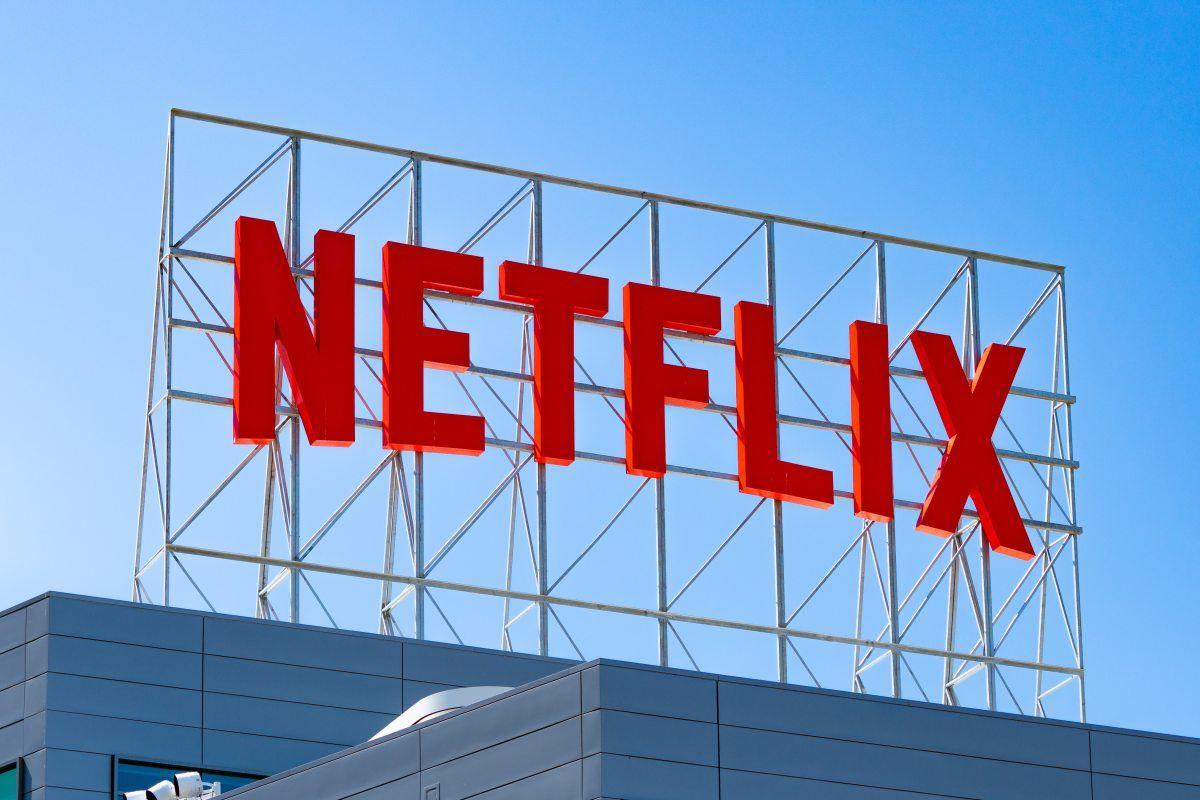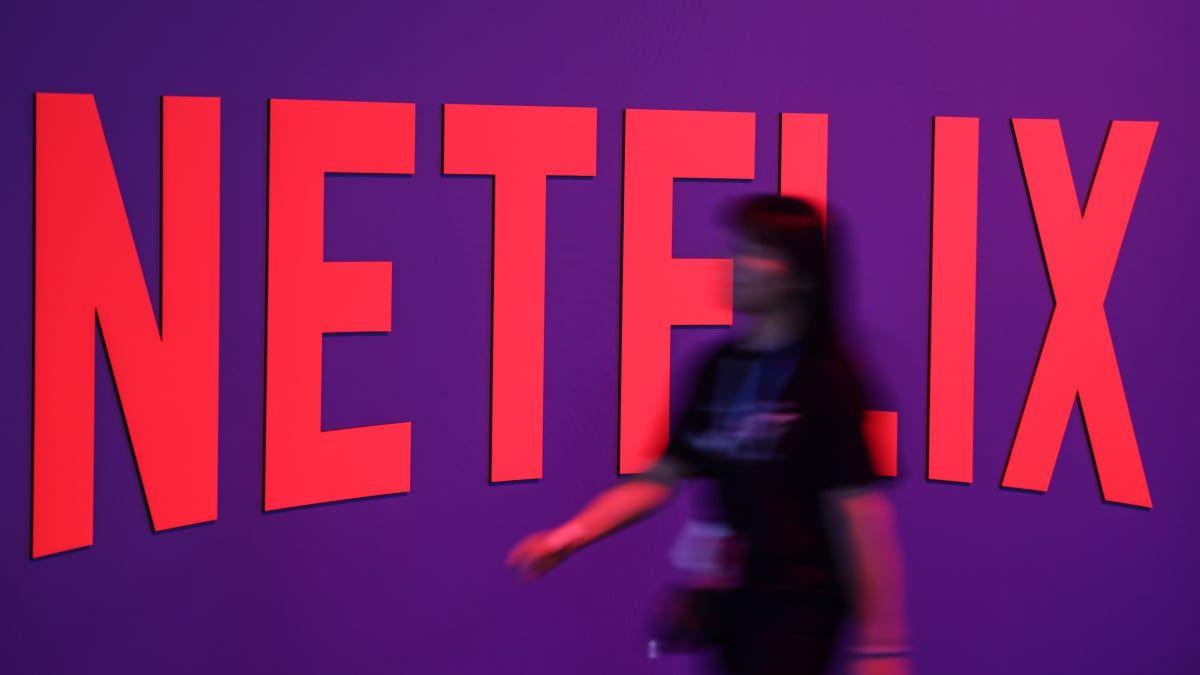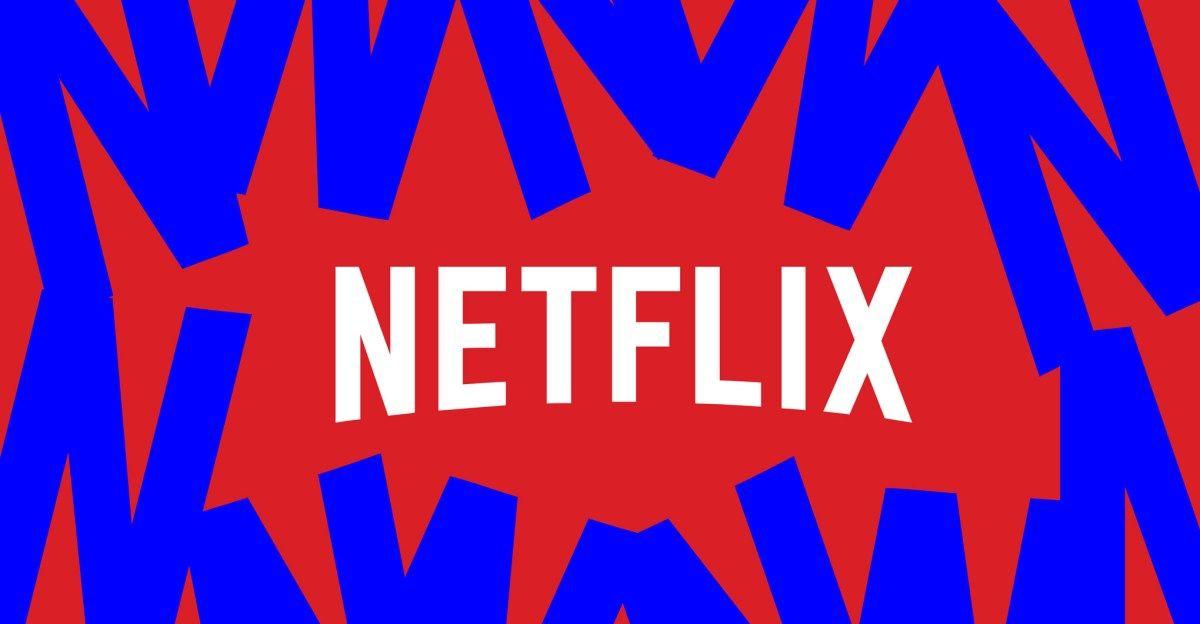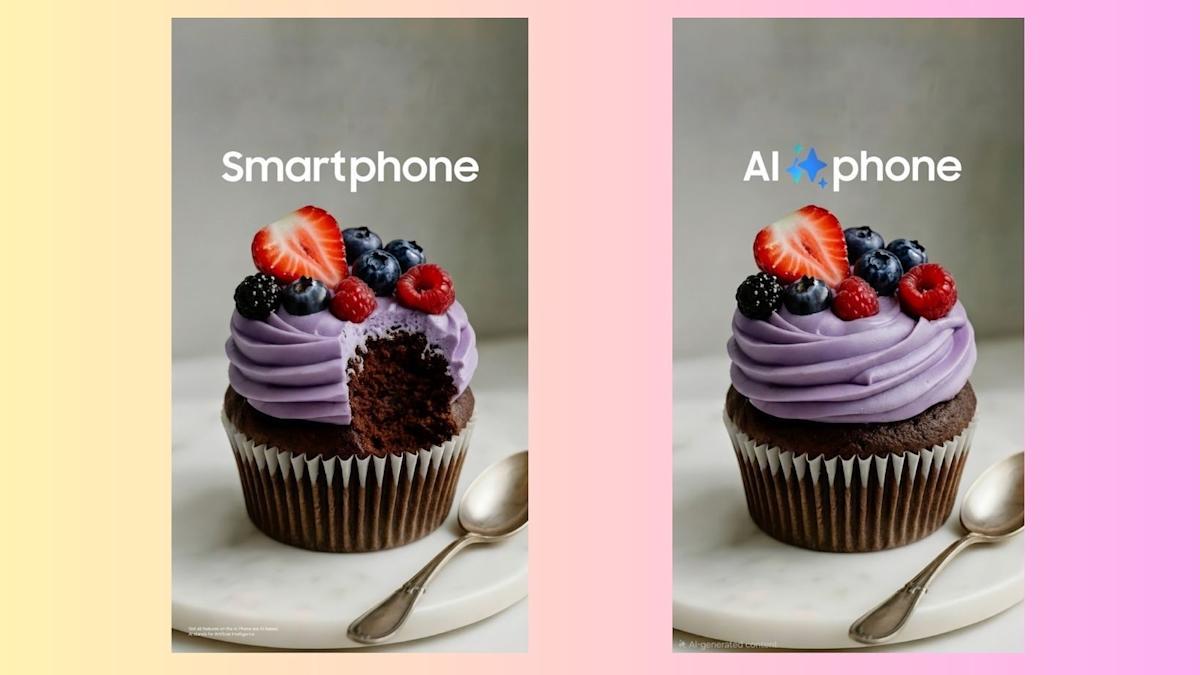Netflix Embraces AI: A Game-Changer for Streaming and Content Creation
9 Sources
9 Sources
[1]
Netflix goes 'all in' on generative AI as entertainment industry remains divided | TechCrunch
As the entertainment industry reckons with when and how to use generative AI in filmmaking, Netflix is leaning in. In its quarterly earnings report released on Tuesday afternoon, Netflix wrote in its letter to investors that it is "very well positioned to effectively leverage ongoing advances in AI." Netflix isn't planning to use generative AI as the backbone of its content but believes the technology has potential as a tool to make creatives more efficient. "It takes a great artist to make something great," Netflix CEO Ted Sarandos said on Tuesday's earnings call. "AI can give creatives better tools to enhance their overall TV/movie experience for our members, but it doesn't automatically make you a great storyteller if you're not." Earlier this year, Netflix said it used generative AI in final footage for the first time in the Argentine show "The Eternaut" to create a scene of a building collapsing. Since then, the filmmakers behind "Happy Gilmore 2" used generative AI to make characters look younger in the film's opening scene, while the producers of "Billionaires' Bunker" used the technology as a pre-production tool to envision wardrobe and set design. "We're confident that AI is going to help us and help our creative partners tell stories better, faster, and in new ways," Sarandos said. "We're all in on that, but we're not chasing novelty for novelty's sake here." AI has been a contentious topic in the entertainment industry, as artists worry that LLM-powered tools that non-consensually used their work as training data have the potential to negatively impact their jobs. With Netflix as a bellwether, it seems that studios are more likely to use generative AI for special effects rather than to replace the role of actors -- even if an AI actor recently caused an uproar among Hollywood actors, despite not yet booking any gigs (that we know of). These behind-the-scenes AI uses still have the potential to impact visual effects jobs, however. These debates recently escalated when ChatGPT-maker OpenAI unveiled its Sora 2 audio and video generation model, which was released without guardrails that prevent users from generating videos of some actors and historical figures. Just this week, the Hollywood trade organization SAG-AFTRA and actor Bryan Cranston urged OpenAI to institute stronger guardrails against deepfaking actors like Cranston himself. When an investor asked Sarandos about the impact of Sora on Netflix, he said that it "starts to make sense" that content creators could be impacted, but he's less worried about the movie and TV business -- or so he tells investors. "We're not worried about AI replacing creativity," he said. Netflix's quarterly revenue grew 17% year-over-year to $11.5 billion, though this fell below the company's forecast.
[2]
Netflix 'all in' on leveraging AI as the tech creeps into entertainment industry
Netflix is "all in" on leveraging generative artificial intelligence on its streaming platform, according to the company, as AI continues to make its way into mainstream entertainment. The comments came from Netflix's earnings report Tuesday, which highlighted AI as a major focus for the world's largest streaming service by subscriber count. "For many years now, [machine learning] and AI have been powering our title recommendations as well as production and promotion technology," Netflix said in a letter to shareholders. Netflix added that generative AI presents a "significant opportunity" across its streaming platform, including improving its recommendations, ads business, and movies and TV content. "We're empowering creators with a broad set of GenAI tools to help them achieve their visions and deliver even more impactful titles for members," it said. Netflix provided recent examples of this, noting that in its recently distributed film Happy Gilmore 2, it used generative AI tools to help de-age characters. Meanwhile, producers for the Netflix series Billionaires' Bunker have used various generative AI tools during pre-production to explore wardrobe and set designs. Netflix's comments come amid broader concerns in the entertainment and art world regarding the potential for AI to replace human workers and the technology's use of human-made content. Speaking during an earnings call, Netflix CEO Ted Sarandos seemingly addressed those issues, noting that AI can enhance the overall TV and movie experience, but "can't automatically make you a great storyteller if you're not." "We're confident that AI is going to help us and help our creative partners tell stories better, faster and in new ways -- we're all in on that," Sarandos said. He added: "We're not worried about AI replacing creativity." However, many in the entertainment industry remain skeptical of AI and its growing presence in media. An upstart production studio called Particle6 recently faced massive backlash for its plan to create, design, manage and monetize AI-generated actors and talent, including from the media union SAG-AFTRA. SAG-AFTRA previously led a significant actors' strike in July 2023, amid a broader series of Hollywood labor disputes that saw concerns about the use of artificial intelligence brought to the forefront. The strike lasted over 100 days before a tentative agreement was reached between SAG-AFTRA and the Alliance of Motion Picture and Television Producers, which included the establishment of contractual AI protections for film and TV performers for the first time. To further encourage the responsible use of such AI tools, Netflix recently released a new AI-focused production guidance aimed at its creators.
[3]
Netflix’s Stock Drops on Lackluster Earnings, but Its AI Implementation Is Going Way Up
Netflix reported its quarterly earnings on Tuesday, and revenue was $11.51 billionâ€"slightly below Bloomberg’s forecast of $11.52 billion. Earnings per share were $5.87, below an estimate of $6.94. (All of this is per Yahoo! Finance). Not catastrophic, but not great. The company’s stock price went down by 5.6%. But hey, how about all that AI? In its shareholder letter, and then again in its earnings call, Netflix co-CEOs Ted Sarandos and Greg Peters touted coming generative AI implementation as an exciting new development across content generation, user experience, and in advertising. All the AI talk made it feel like it was 2023 again. To illustrate how much AI seems to be on the CEOs' minds, at 26 minutes and 34 seconds into the earnings call, Peters gives an answer in which he rattles off what seems to be an ad-hoc list of six challenges Netflix faces as a company, starting with creating TV and movies around the world. Implementing AI is the second item he mentions. The shareholder letter kicked off the topic of AI with what is actually a pretty big truth bomb: “For many years now, ML and AI have been powering our title recommendations as well as production and promotion technology.†That’s truer than you might think. All the way back in 2008, Netflix found a genuinely fun way to publicize its use of machine learning: by asking the public to figure out why some people like Napoleon Dynamite and others don’t, with math. Much has changed since those days, and now Netflix says it’s shoehorning AI features into Netflix wherever it can. For instance, the earnings letter says a beta test is ongoing that adds a “conversational search†function, helping people “discover the perfect title for that moment.†The goal here sounds easy enough to picture without speculating too wildly. I can picture saying “What’s a movie to watch with my mom on her 50th birthday?†into a Roku remote and getting a list of recs. On the techical side, Netflix says there’s an effort afoot to use AI to “localize†(which basically means “translateâ€) promotional assets into other languages and regions, which sounds like it could theoretically allow relevantâ€"but obscure and foreignâ€"movies and TV that I might love to come to me, even without readily available artwork and summaries in my language. Theoretically anyway. But most of all, Netflix says it will be “empowering creators with a broad set of GenAI tools to help them achieve their visions.†For instance, the letter boasts that AI de-aging was used in Happy Gilmore 2, and that the producers of Billionaires’ Bunker used Generative AI tools for concept art. But how does Netflix regard Sora 2, the video generator that plunged the internet into copyright hell upon its release last month? Sarandos, for his part, is not telegraphing some kind of rapid slopification at Netflixâ€"and he hastens to add that he’s not intimidated by Sora 2 currently. According to Sarandos, “it's likely to have a lot more impact on UGC creators the most in the near term. In other words, AI content replacing viewing of existing user-generated content. That starts to make sense.†It’s worth noting that Sarandos is already trying to convince influencers to leave YouTube. If you’re a YouTuber who hasn’t already agreed to a Netflix deal, and you’re worried that Sora 2 is coming to eat your lunch, Sarandos’ suggestion that your business model is more vulnerable than his could be part of an effort to win you over. But Sarandos says AI "doesn't automatically make you a great storyteller if you're not." For once a tech CEO talking about AI doesn't sound like he's sharpening his layoffs ax. “We're confident that AI is going to help us and help our creative partners tell stories better, faster, and in new ways,†Sarandos said, adding, “We're all in on that.â€
[4]
Netflix doubles down on its AI stance, but should actors worry?
Netflix chief hints at the technology's rising role in TV and movie production. With OpenAI's recent release of the Sora 2 video generation tool, it's easy to see how content creators are increasingly tempted to utilize generative-AI technology in their work. Netflix said earlier this year that it's excited by the technology, and in a letter sent to investors on Tuesday as part of its latest earnings report the company confirmed its intent to utilize it for its original productions, saying that it was "very well positioned to effectively leverage ongoing advances in AI." Recommended Videos But in an earnings call on the same day, Netflix boss Ted Sarandos also acknowledged that "it takes a great artist to make something great ... AI can give creatives better tools to enhance their overall TV and movie experience for our members, but it doesn't automatically make you a great storyteller if you're not." Over the summer, Sarandos said that Netflix is of the view that AI represents "an incredible opportunity to help creators make films and series better, not just cheaper. So this is real people doing real work with better tools. Our creators are already seeing the benefits in production through pre-visualization and shot planning work, and certainly visual effects." Earlier in the year, in April, Netflix revealed that it had used AI in The Eternaut (featured in our list of this month's best Netflix shows), an Argentine sci-fi drama based on the comic by Héctor Germán Oesterheld and Francisco Solano López. Visual effects artists on The Eternaut worked with Netflix to depict a building collapse in Buenos Aires, marking the first time for an AI-generated sequence to appear in a Netflix original series or movie. Sarandos described the incorporated footage as "amazing," adding that the sequence was completed 10 times faster than it would've been if traditional VFX tools and workflows had been used. While AI technology for video creation and special effects is highly impressive and improving all the time, actors, voice artists, and others in the TV and movie industry are becoming increasingly concerned about the growing potential for AI to take away their work. Netflix is currently talking more about using it for special effects and other parts of the creative process, but some believe there's an air of inevitability about the technology being increasingly deployed throughout a production, at the extreme end even replacing actors with digital replicas or AI-generated performances. Sarandos hasn't explicitly rejected the idea, and so as AI's capabilities advance, it's hard to see Netflix and other content producers ignoring its potential to reshape a much larger part of the production process.
[5]
Netflix Eyes Full-Scale AI Integration From Platform to Production
The company said that AI is also being used in content production Netflix is planning to bet heavily on generative artificial intelligence (AI) across different verticals, the company stated on Tuesday. In a letter to the shareholders, sharing the revenue details and achievements during Q3 2025, the streaming giant highlighted new AI features and projects it is currently working on, and the areas it wants to bring the technology to. The company's co-CEO, Ted Sarandos, reportedly also highlighted that AI will help the platform's creative partners in telling better stories faster and in newer ways. Netflix Commits to AI Integration Across Platform In the letter to shareholders, the company highlighted that it has always relied upon technology to deliver high quality experience to subscribers. After using AI and machine learning (ML) in its recommendation engine for years, the company said it is now focusing on integrating AI. The streaming giant claimed that its "significant data assets" as well as product and business processes are enabling it to leverage the benefits of the technology. Separately, in the earnings call, Sarandos also emphasised using AI across the content production pipeline. "We're confident that AI is going to help us and help our creative partners tell stories better, faster, and in new ways. We're all in on that, but we're not chasing novelty for novelty's sake here," Sarandos was quoted by TechCrunch as saying. One of the areas where Netflix is pushing the integration of AI is in content recommendation and discovery tools. Currently, the streaming platform is beta testing a conversational search experience that will allow users to explore the catalogue and discover new titles via natural language queries. Additionally, the company is also using AI to distribute promotional materials in different languages to help the content reach a wider audience. Focusing on AI's role in production, the letter highlighted that computer-generated imagery (CGI) effects can be replaced with AI outputs. Sharing the example of Happy Gilmore 2, the company said that the makers used AI to de-age the characters in a flashback scene. Other instances include using AI to explore wardrobe and set designs. The company also intends to use AI for its ad business to test and introduce new ad formats. These new formats will be focused on generating the most relevant ad creatives and placements for users. This will be rolled out in the next quarter. Notably, in Q3 2025, Netflix witnessed a year-on-year (YoY) revenue growth of 17 percent. Calling it "in line with our forecast," the company said the primary drivers were subscription growth, pricing adjustments, and increased ad revenue. Additionally, its ongoing dispute with Brazilian tax authorities also played a role in keeping operating margins lower than expected.
[6]
Netflix ups bet on AI to drive content, ads despite industry unease
Netflix is embracing generative AI to enhance subscriber experiences, empower creators, and optimize advertising. The streaming giant is integrating GenAI for de-aging characters, visualizing designs, and improving content recommendations with features like conversational search. This move comes as the industry navigates AI's impact on artists' rights, with companies like OpenAI collaborating to prevent misuse of likeness. Online streaming platform Netflix said in a recent letter to investors that it sees a "significant opportunity" in using generative artificial intelligence (GenAI) to benefit its subscribers, creators, and advertisers. "We're empowering creators with a broad set of GenAI tools to help them achieve their visions and deliver even more impactful titles for members," Netflix said in the letter to investors after its third quarter results. For instance, in the Adam Sandler-starrer Happy Gilmore 2 released this July, filmmakers used GenAI to de-age characters during the opening flashback scene. The producers of Billionaires' Bunker used various GenAI tools during pre-production to visualise wardrobe and set designs. Netflix had used GenAI for the first time earlier this year in the Argentine science fiction series, The Eternaut. The company is also planning to increase the use of AI to better its recommendations and content discovery for viewers, including a conversational search feature using voice inputs, and localising promotional assets in a variety of languages. Netflix said that it will use AI to test new ad formats in the fourth quarter "to generate the most relevant ad creative and placement for members, and for faster development of media plans." The streaming major is planning to increase the use of Gen AI even as the entertainment industry grapples with how to utilise the technology without compromising artistes' interests. Recently, OpenAI joined Hollywood body Screen Actors Guild-American Federation of Television and Radio Artists (SAG-AFTRA) to crack down on deepfakes created using its Sora 2 model with the voice and likeness of Breaking Bad actor Bryan Cranston. "OpenAI is deeply committed to protecting performers from the misappropriation of their voice and likeness. We were an early supporter of the NO FAKES Act when it was introduced last year, and will always stand behind the rights of performers," OpenAI CEO Sam Altman said in a joint statement with SAG-AFTRA.
[7]
Is Netflix a Friend or Foe to AI?
Ben Stiller's New Apple TV+ Documentary Will Change How You View Your Parents Late in Ted Sarandos' interview with Wall Street analysts Tuesday afternoon, the Netflix co-CEO was asked about the value of AI to the company. Sarandos, who in shaping the era's most successful Big Tech entrant to Hollywood has always been a skillful communicator, gave a telling answer. The company, he said, was excited "to leverage new technical capabilities as they come online," noting that AI can help with not just advertising and product but "content production." The line echoed a sentence in the company's investor letter from earlier in the day that, "We're empowering creators with a broad set of GenAI tools to help them achieve their visions and deliver even more impactful titles for members." (It also cited the way the technology was used to de-age characters in Adam Sandler's recent Happy Gilmore 2.) But then Sarandos seemed to perform a walkback. "We're not chasing novelty for novelty's sake," he said, noting that "it takes a great artist to make something great." By now Hollywood's position on AI is clear: oppose what the tech companies are doing. That can and, one suspects, will change as deals are made; the current pitched battle looks a lot different when seen as prelude to a negotiation (see also under: the music industry and streaming during the Napster era). But for now there's whole lot of daylight between AI giants and Hollywood firms. "How are you coming to the industry expecting partnership," a WME partner told THR he said to OpenAI executives. "You quite literally set the bridge on fire." But Netflix occupies a much trickier space. Long a disruptor, the company has made a name for itself by embracing new technology. Even more important, it has increased its valuation on Wall Street by embracing new technology. Yet the company also has many, many deals with top Hollywood talent, represented by WME and elsewhere, that sees this particular new technology as bridge-burning. And so on Tuesday Sarandos found himself trying to do the impossible: look AI-friendly enough to appease investors while AI-skeptical enough not to worry its stable of high-end filmmaking partners. And the number of those filmmakers antagonistic to AI is long. One of the company's biggest, Guillermo del Toro, has been vehemently opposed to the tech, and his new film Frankenstein, currently in theaters and on Netflix next month, even plays as a cautionary tale about the dangers of letting technological progress run amok. On Monday I ran into del Toro and asked him what he thought of Sora 2 and this wave of generative AI in creative spaces. "I don't think anyone wants this," he said. He was referring to a whole swath of artistic industries and said that, while individual players might be "acquiescing," he thought they were doing it against their better judgment. The director's longtime producer, J. Miles Dale, explained the filmmaker's position further in an interview. "We're not opposed to technology, but not as a cost of artisanship," Dale said. "It's about soul, really." The filmmaker would possibly use AI as a "last resort" late in the post process -- to smooth something over, maybe -- but nothing more. How would del Toro feel if someone on his team suggested using AI to generate something from the outset? "It would be like spitting on God," Dale said, smiling but not joking. Not exactly Sarandos' position. One way Netflix steers their way out of this narrow alley: Say it's not for the top tier of artists. Sarandos tried to finesse the wheel that way on Tuesday by saying that he believes AI video will be used primarily by creators of "UGC," or user-generated content. But Netflix is also trying to sign influencers, and telling thousands of prospective partners that the company admires the tech currently gunning for their jobs doesn't seem likely to play well either. Also, influencer content is getting really professionalized, and if AI is coming for them, what's to stop it from coming for a host of other programming that exists in Hollywood's middle class? So far Netflix movies don't appear more AI-ified than any other Hollywood studio. As long as the company sticks with that position in practice, executives can try to toe the line in earnings calls and public statements. (Apple, Amazon and Google are also in entertainment of course, but their stock price rises and falls on other businesses.) But as these AI products roll out and get integrated on social apps and the Web writ large -- on Tuesday OpenAI launched its own browser -- Wall Street is going to demand more AI usage from Netflix. And what does the company do then? Even a service that prides itself on offering everyone's favorite show may have to choose a lane.
[8]
Netflix Expands Generative AI Strategy Across Streaming and Content Production | PYMNTS.com
By completing this form, you agree to receive marketing communications from PYMNTS and to the sharing of your information with our sponsor, if applicable, in accordance with our Privacy Policy and Terms and Conditions. The company said it is "all in on leveraging AI," calling the technology central to how it plans to enhance creativity, personalization and monetization. The announcement came as Netflix reported strong third-quarter results, with revenue rising 17 percent year over year to $11.5 billion and more than 9 million new paid memberships added globally. CEO Ted Sarandos said AI represents "a significant opportunity for us to deliver benefits to our members, creators and business." Netflix's investor statement added that AI will help the company "improve how content is created, distributed and monetized," underscoring its ambition to integrate generative tools throughout production and platform workflows. Netflix has already begun deploying AI in several areas of content development. Its production guidance details how generative tools can assist with concept art, set design and visual effects under the supervision of creative teams. The company said AI will speed up production and expand creative options without replacing artists or writers. Beyond production, AI is also reshaping Netflix's viewer experience. The company plans to introduce new interactive and personalized advertising later this year. As PYMNTS reported, the initiative will allow viewers to engage with sponsored content during playback. Ads will adjust dynamically to viewer interests and context, enabling brands to connect with audiences in real time. Netflix is also testing generative ad formats that integrate directly into programming, according to PYMNTS. These in-show ads would blend with storylines or scene transitions, creating seamless experiences that link entertainment and commerce. The company said these tools reflect a broader shift toward AI-driven advertising that can scale globally while maintaining local relevance. Netflix's strategy shows how streaming platforms are evolving into data-rich ecosystems where AI connects creative production, distribution and monetization. The company's goal, Sarandos said, is to make entertainment "more personal, accessible and interactive" while positioning Netflix as a leader in AI-driven storytelling, advertising and audience engagement.
[9]
Netflix to Use GenAI for Natural-Language Search, Ad Placements & Targeting - MEDIANAMA
The streaming giant Netflix is set to use Generative AI (GenAI) for content recommendation, letting users search for the desired content in natural language, without requiring the need for exact titles and content's associated names, as revealed in the Q3 2025 quarterly letter to shareholders. Additionally, the streaming giant also plans to use AI and ML for creating new ad formats and for better ad placements, meaning that the AI will be leveraged to find the slots for ads while watching the content on Netflix in low-tier subscription plans. "We're leveraging GenAI to further enhance the member experience by improving the quality of our recommendations and content discovery features. One example is our beta testing of a conversational search experience that allows members to use natural language to explore the catalogue and discover the perfect title for that moment," read their quarterly letter to the shareholders. The streaming company also revealed that they are using generative AI to automatically translate and adapt promotional materials, like posters, trailers, and marketing content, into different languages so that the movies, shows, or other titles are accessible to audiences around the world, helping those titles "travel" more easily to international markets. However, Netflix Co-CEO Theodore Sarandos acknowledged that it makes sense to think that it is possible to replace the original user-generated content with GenAI content. Nonetheless, he said, concluding that the AI can serve the artists as tools, and said they are not worried about AI replacing creativity. Netflix's guiding principles for disclosure of generative AI in content production require filmmakers, production partners, and vendors to disclose any planned AI use to their Netflix contact and follow specific rules. They must ensure AI outputs do not copy or infringe on copyrighted material, that tools do not train on production data, and that they use enterprise-secured AI tools whenever possible. They must also exclude generative AI materials from final deliverables and obtain consent before using AI to replace performances or union-covered work. Dodging the impact of GenAI tools like Sora on the OTT platform, Gregory K. Peters, Co-CEO, President & Director, said, "We think we can often develop using building blocks from others. So think about this as foundational models that we get open source or commercially to make cutting-edge tools and cutting-edge experiences." It also plans to use AI to test the "new ad formats to generate the most relevant ad creative and placements." "With these [AI-led] advancements, we'll be able to test, iterate, and innovate on dozens of ad formats by 2026," read their statement. This update regarding the AI-driven ad placements follows their previous announcement regarding the same. Earlier in May this year, MediaNama reported Netflix's plans to launch AI-driven advertisements that "marry advertisers' ads with the shows", introducing product placement-style formats starting in 2026. Additionally, Netflix had earlier expanded its Ads Suite to 12 countries, including the US, UK, and Canada, in November 2022. However, despite the popular trend of ad-driven adoption of revenue models - even for low-tier paid premium plans-the ad-supported plan for Netflix is yet to roll out in India. Despite these ad-related initiatives, Netflix maintains that advertising is not its primary revenue model, with most of its income still coming from subscriptions, according to Chief Financial Officer Spencer Neumann's statement during the previous earnings call in July 2024. He also affirmed that it is unlikely that ads will become the company's main source of revenue. Referring to the ad platform, Gregory K Peters, Co-CEO, President & Director, said, "Advertisers are excited about our growing scale. We've got a highly attentive and engaged audience. The rollout of our ad tech stack means we've got more formats. We've got more measurements. We've got more ways to buy. And of course, our slate [upcoming movies and series] is a critical and important source of competitive differentiation." Netflix is also focusing on expanding its advertising business by making it easier to ad through interacting with ad-buying platforms and advertisers, like Amazon DSP and AJA in Japan, and introducing interactive ad formats. Peters also said that AI-ML-based ad targeting will continue, only to get enhanced by 2027. According to Netflix's Q3 2025 shareholder letter, the company reported continued steady regional revenue growth across all major markets. For reference, in the UCAN (United States and Canada) region, the streaming giant recorded $5.07 million in revenue, marking a 17% year-over-year (YoY) increase. Similarly, the EMEA (Europe, Middle East, and Africa) region posted $3.70 million in revenue, maintaining the same 18% YoY growth compared to the previous quarter. The LATAM (Latin America) region, revenue rose to $1.37 million, representing 10% YoY growth. Meanwhile, the APAC (Asia-Pacific) region generated $1.37 million in revenue, up 21% YoY, indicating a slight 3% YoY dip compared to the previous quarter. Theodore A. Sarandos, Co-CEO, President & Director of Netflix, says the company still has significant room to grow, as it represents only about 7% of addressable global entertainment spending and only 10% of TV viewing time in its largest market (the country is not specified). "So enormous room for profitable growth in the core business," affirmed Sarandos. Alongside online games, beyond movies and series, speaking of the offline expansion, Sarandos also announced the license-based partnership with Mattel and Hasbro to produce K-pop-related toys.
Share
Share
Copy Link
Netflix announces full-scale integration of AI across its platform, from content recommendations to production. The move sparks both excitement and concern in the entertainment industry.
Netflix's AI Revolution
Netflix, the world's largest streaming service by subscriber count, has announced its intention to go 'all in' on generative artificial intelligence (AI) across its platform. This bold move, revealed in the company's recent quarterly earnings report, signals a significant shift in how the entertainment giant approaches content creation, recommendation systems, and advertising
1
2
.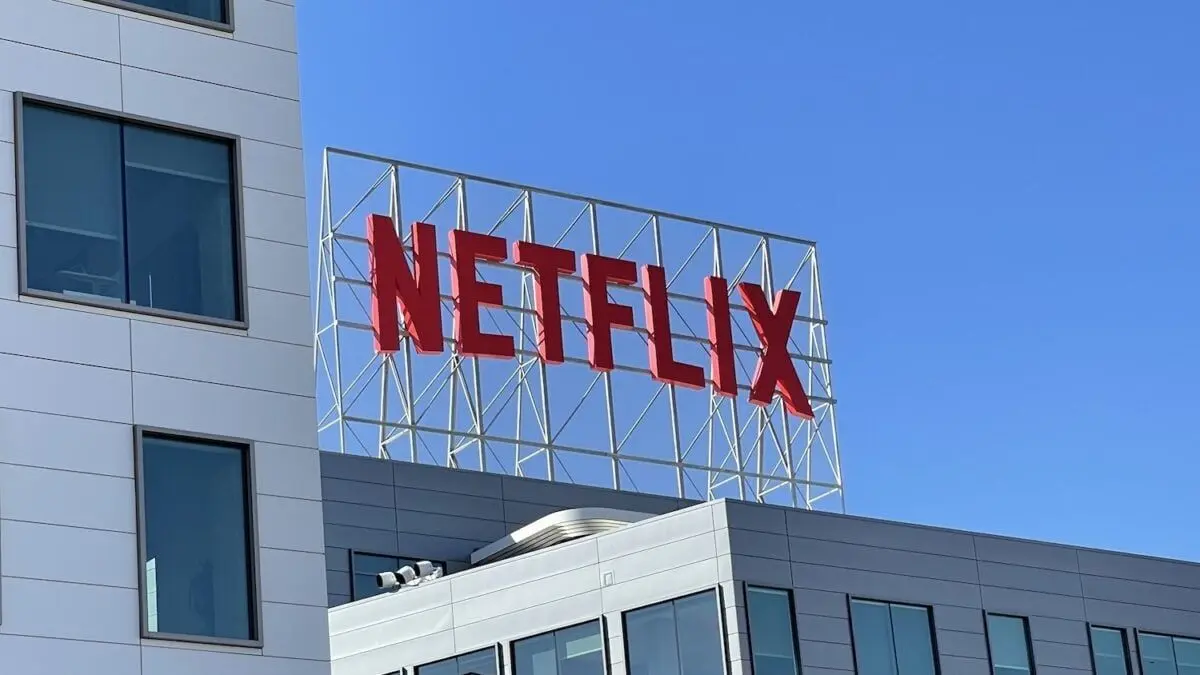
Source: Gizmodo
AI in Content Production
Netflix is already leveraging AI in various aspects of content production. The company has used generative AI for de-aging characters in 'Happy Gilmore 2' and for pre-production tasks such as exploring wardrobe and set designs in 'Billionaires' Bunker'
1
. In a groundbreaking move, Netflix incorporated AI-generated footage in the Argentine sci-fi drama 'The Eternaut', marking the first time an AI-generated sequence appeared in a Netflix original series4
.Enhancing User Experience
Netflix is beta testing a conversational search experience that will allow users to discover content using natural language queries
5
. The company is also exploring AI-powered localization of promotional materials to help content reach wider audiences across different languages and regions2
.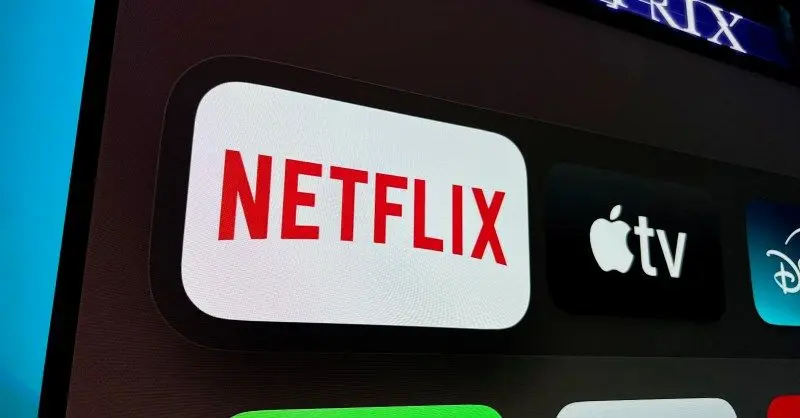
Source: Digital Trends
AI in Advertising
In the coming quarter, Netflix plans to leverage AI in its advertising business to test and introduce new ad formats. These innovations aim to generate more relevant ad creatives and placements for users, potentially revolutionizing the streaming advertising landscape
5
.Related Stories
Industry Concerns and Netflix's Stance
The entertainment industry remains divided on the use of generative AI, with concerns about job displacement and copyright infringement
1
. Netflix CEO Ted Sarandos addressed these concerns, stating, 'It takes a great artist to make something great... AI can give creatives better tools to enhance their overall TV/movie experience for our members, but it doesn't automatically make you a great storyteller if you're not'1
.Financial Performance and AI Strategy
Despite Netflix's enthusiasm for AI, the company's Q3 2025 financial results fell slightly below expectations, with revenue at $11.51 billion and earnings per share at $5.87
3
. However, Netflix remains confident that its AI strategy will drive future growth and innovation across its platform5
.As Netflix continues to push the boundaries of AI integration in the streaming industry, the impact on content creation, user experience, and the broader entertainment landscape remains to be seen. The company's bold approach to AI adoption could set a new standard for the industry, potentially reshaping how we consume and create digital content in the years to come.
References
Summarized by
Navi
[1]
[3]
[4]
Related Stories
Recent Highlights
1
ByteDance Faces Hollywood Backlash After Seedance 2.0 Creates Unauthorized Celebrity Deepfakes
Technology

2
Microsoft AI chief predicts artificial intelligence will automate most white-collar jobs in 18 months
Business and Economy

3
Google reports state-sponsored hackers exploit Gemini AI across all stages of cyberattacks
Technology

